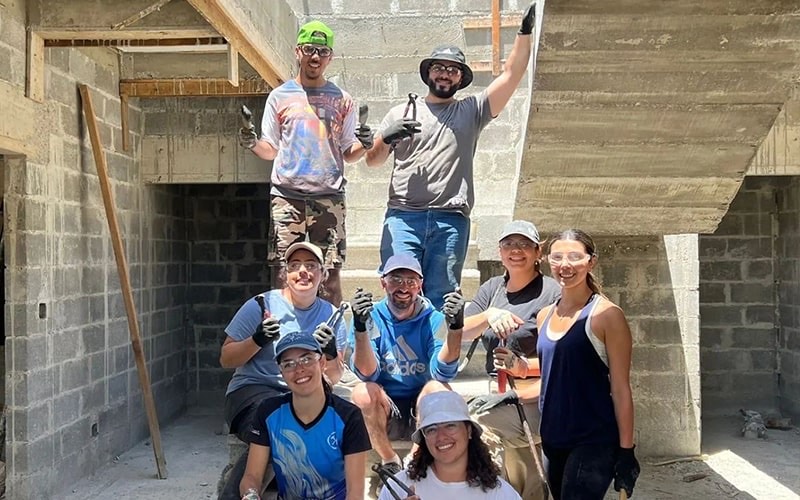
Gap year programs have become increasingly popular among young adults seeking personal growth, new experiences, and a chance to explore the world before pursuing higher education or entering the workforce. Gap Year Programs provide opportunities to develop essential life skills, leadership abilities, and global awareness through structured activities, volunteer work, internships, and cultural immersion.
This article answers frequently asked questions about gap year programs and how they help young adults grow academically, professionally, and personally.
What Is a Gap Year Program?
A gap year program is a structured period, typically lasting six months to one year, where young adults take a break from formal education or work to engage in meaningful experiences. These programs are designed to provide personal development, cultural exposure, skill-building, and opportunities for reflection.
Participants may travel internationally, volunteer with communities, engage in environmental projects, or gain practical work experience. The primary aim is to help young adults gain clarity about their future goals, develop independence, and build essential skills for life and career success.
Why Should Young Adults Consider a Gap Year?
Young adults consider gap year programs for a variety of reasons:
- To gain real-world experience before starting college or work.
- To explore personal interests, passions, and career options.
- To develop soft skills such as communication, teamwork, and problem-solving.
- To immerse themselves in different cultures and build global awareness.
- To cultivate leadership and personal responsibility.
A well-structured gap year can enhance resumes, improve college applications, and provide participants with a clearer understanding of their strengths and aspirations.
How Do Gap Year Programs Develop Life Skills?
Gap year programs encourage participants to step out of their comfort zones and take on responsibilities independently. Key life skills developed include:
- Time Management: Managing schedules for volunteering, internships, travel, or coursework enhances organizational skills.
- Financial Literacy: Budgeting for travel, accommodations, and daily expenses teaches young adults to manage money effectively.
- Problem-Solving: Facing challenges in unfamiliar environments builds resilience and adaptability.
- Communication: Interacting with diverse groups fosters effective verbal and written communication.
- Self-Reliance: Participants learn to navigate new situations, make decisions, and handle responsibilities independently.
By gaining practical experience in real-world settings, young adults acquire skills that are highly valuable in academic and professional contexts.
How Do Gap Year Programs Foster Leadership Skills?
Leadership development is a core component of many gap year programs. Activities designed to build leadership include:
- Team Projects: Collaborative projects in communities or environmental programs teach participants to coordinate, delegate tasks, and motivate team members.
- Mentorship Opportunities: Some programs pair participants with mentors who guide and provide leadership training.
- Decision-Making Responsibilities: Managing projects or organizing events encourages participants to make informed and responsible choices.
- Conflict Resolution: Working with diverse groups requires understanding different perspectives and resolving disagreements constructively.
By taking initiative and leading in various scenarios, young adults develop confidence, accountability, and the ability to inspire and guide others.
How Do Gap Year Programs Promote Global Awareness?
Gap year programs often include international travel, cultural immersion, and cross-cultural volunteer work. These experiences cultivate global awareness by:
- Exposing participants to different cultural norms, values, and lifestyles.
- Encouraging empathy and understanding for people from diverse backgrounds.
- Providing insight into global social, environmental, and economic issues.
- Teaching participants to navigate language barriers, customs, and international etiquette.
Global awareness gained during a gap year fosters open-mindedness, cultural sensitivity, and a broader worldview, which are essential in today’s interconnected world.
What Types of Gap Year Programs Are Available?
Gap year programs vary widely depending on interests, goals, and budget. Common types include:
- Volunteering Programs: Participants contribute to social, environmental, or educational projects locally or abroad.
- Internships: Professional experience in fields such as business, healthcare, or technology provides career exposure.
- Travel Programs: Exploration of new countries, cultures, and languages broadens horizons.
- Academic Programs: Courses or certifications in areas of interest help participants advance academically.
- Adventure and Outdoor Programs: Activities like hiking, trekking, or outdoor leadership development build resilience and teamwork.
Many programs combine multiple elements, offering a well-rounded experience that addresses personal, professional, and educational growth.
How Do Gap Year Programs Support Career Preparation?
Gap year experiences enhance career readiness in several ways:
- Skill Development: Participants gain practical and transferable skills valued by employers, such as leadership, teamwork, and communication.
- Networking Opportunities: Working with professionals, local communities, and international organizations expands professional connections.
- Clarity of Career Goals: Exposure to different fields helps participants understand their interests and strengths before committing to a career path.
- Resume Enhancement: Hands-on experience, global exposure, and demonstrated initiative make participants more competitive in the job market.
Employers increasingly value candidates with diverse experiences and the ability to adapt to complex, global work environments.
How Are Gap Year Programs Structured?
Structured programs usually provide clear objectives, timelines, and support mechanisms. Key components may include:
- Orientation Sessions: Pre-departure or introductory sessions help participants prepare for new environments.
- Mentoring and Support: Program staff or mentors guide participants through challenges, offering advice and resources.
- Skill-Building Workshops: Training in leadership, communication, problem-solving, or language skills is often included.
- Reflection Activities: Journaling, group discussions, or guided sessions encourage participants to reflect on their experiences and personal growth.
- Final Projects: Some programs culminate in a project that demonstrates acquired skills and knowledge.
Structured programming ensures that participants maximize their learning, personal development, and professional growth.
How Much Do Gap Year Programs Cost?
Costs vary widely depending on the type of program, location, and duration. Typical expenses include:
- Program Fees: These may cover training, mentorship, and program organization.
- Travel Costs: Flights, local transportation, and visas for international programs.
- Accommodation and Meals: Housing and daily living expenses.
- Activity Fees: Costs associated with workshops, excursions, or volunteer projects.
Many programs offer financial aid, scholarships, or fundraising support to make participation accessible to a broader range of young adults.
How Do Participants Choose the Right Gap Year Program?
Selecting the right program involves considering personal goals, interests, and logistical factors:
- Identify Goals: Clarify what skills, experiences, or personal growth outcomes are desired.
- Research Options: Compare program types, locations, activities, duration, and costs.
- Check Reputation: Look for programs with positive reviews, clear objectives, and strong support systems.
- Evaluate Safety and Support: Ensure the program provides adequate guidance, emergency resources, and mentorship.
- Consider Timing: Align program start and end dates with educational or career plans.
Choosing a program that aligns with personal goals and interests increases the likelihood of a rewarding and transformative experience.
What Challenges Might Participants Face During a Gap Year?
While gap years offer many benefits, participants may encounter challenges such as:
- Homesickness: Being away from family and familiar environments can be difficult initially.
- Cultural Adjustment: Adapting to new cultures and social norms requires flexibility and openness.
- Financial Management: Budgeting for travel, accommodation, and activities is essential.
- Time Management: Balancing multiple responsibilities, projects, or learning goals can be challenging.
- Health and Safety: Maintaining personal health and navigating unfamiliar environments requires preparation and caution.
Programs often provide support, guidance, and resources to help participants overcome these challenges successfully.
How Can Parents Support Young Adults During a Gap Year?
Parents play a key role in preparing and supporting young adults through a gap year:
- Encourage Independence: Allow participants to make decisions, solve problems, and take responsibility.
- Discuss Expectations: Set clear guidelines about finances, communication, and goals.
- Provide Emotional Support: Offer reassurance, encouragement, and a listening ear as participants navigate new experiences.
- Help With Planning: Assist in researching programs, budgeting, and preparing for travel or logistics.
Active and supportive involvement helps participants feel confident and prepared for their gap year journey.
What Are the Long-Term Benefits of Participating in a Gap Year?
A gap year can have lasting positive effects on young adults, including:
- Enhanced Life Skills: Independence, problem-solving, and adaptability.
- Leadership Abilities: Experience leading projects, teams, or community initiatives.
- Cultural Competence: Awareness and appreciation of global diversity.
- Career Clarity: Greater understanding of personal strengths and interests.
- Networking and Connections: Relationships with mentors, peers, and international communities.
- Academic and Professional Growth: Improved resumes, college applications, and career readiness.
These benefits extend beyond the gap year itself, influencing personal, academic, and professional development for years to come.
Conclusion
Gap year programs provide a unique opportunity for young adults to develop essential life skills, leadership abilities, and global awareness. Through structured experiences such as volunteering, internships, travel, and cultural immersion, participants gain independence, confidence, and clarity about their future goals.
By addressing challenges, leveraging support systems, and reflecting on their experiences, young adults can maximize the personal, academic, and professional benefits of a gap year. These programs foster growth, resilience, and adaptability, equipping participants to thrive in an increasingly interconnected and dynamic world.
For young adults seeking meaningful experiences that combine skill-building, leadership development, and global exposure, a gap year offers an invaluable foundation for lifelong learning and success.


